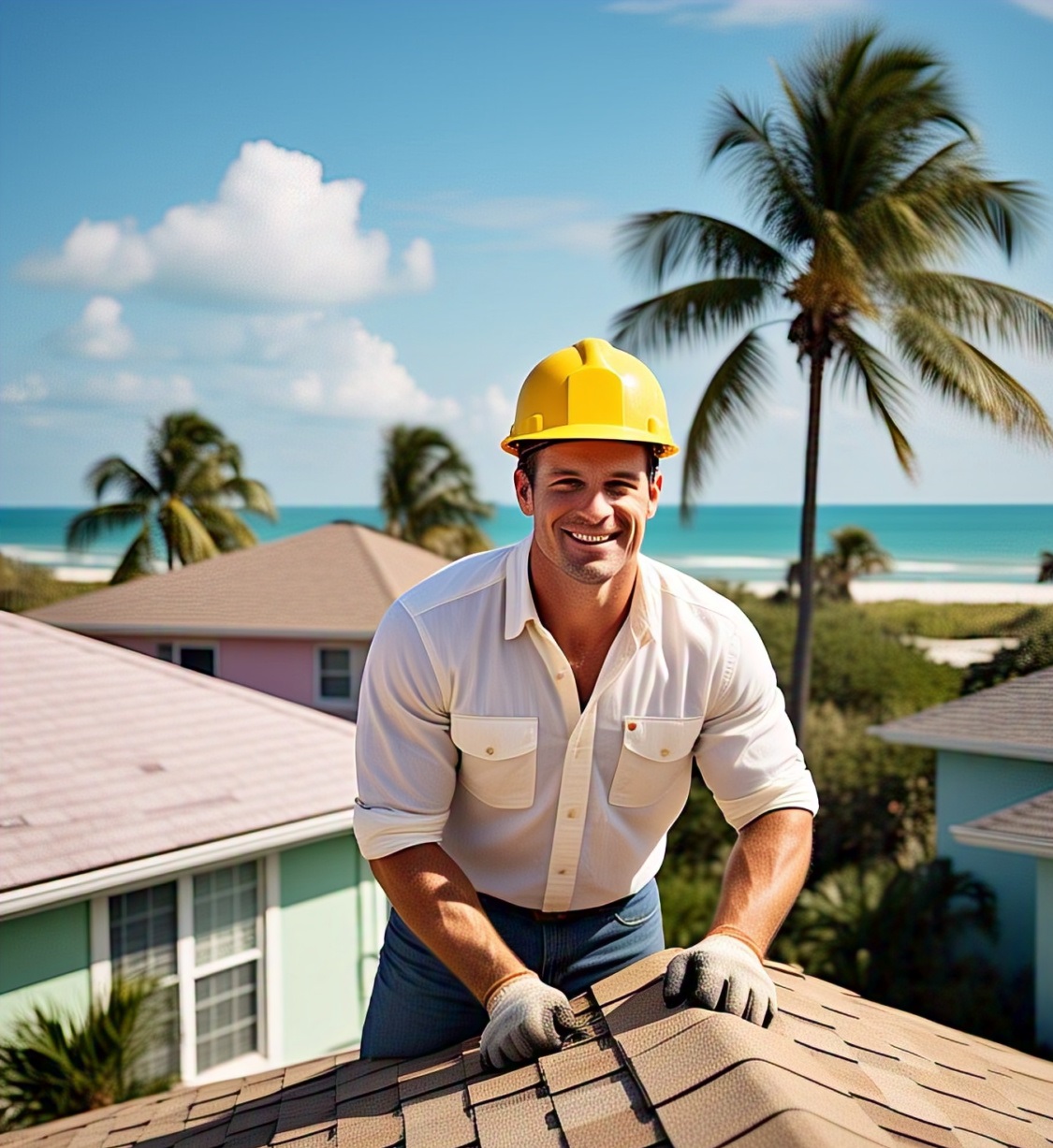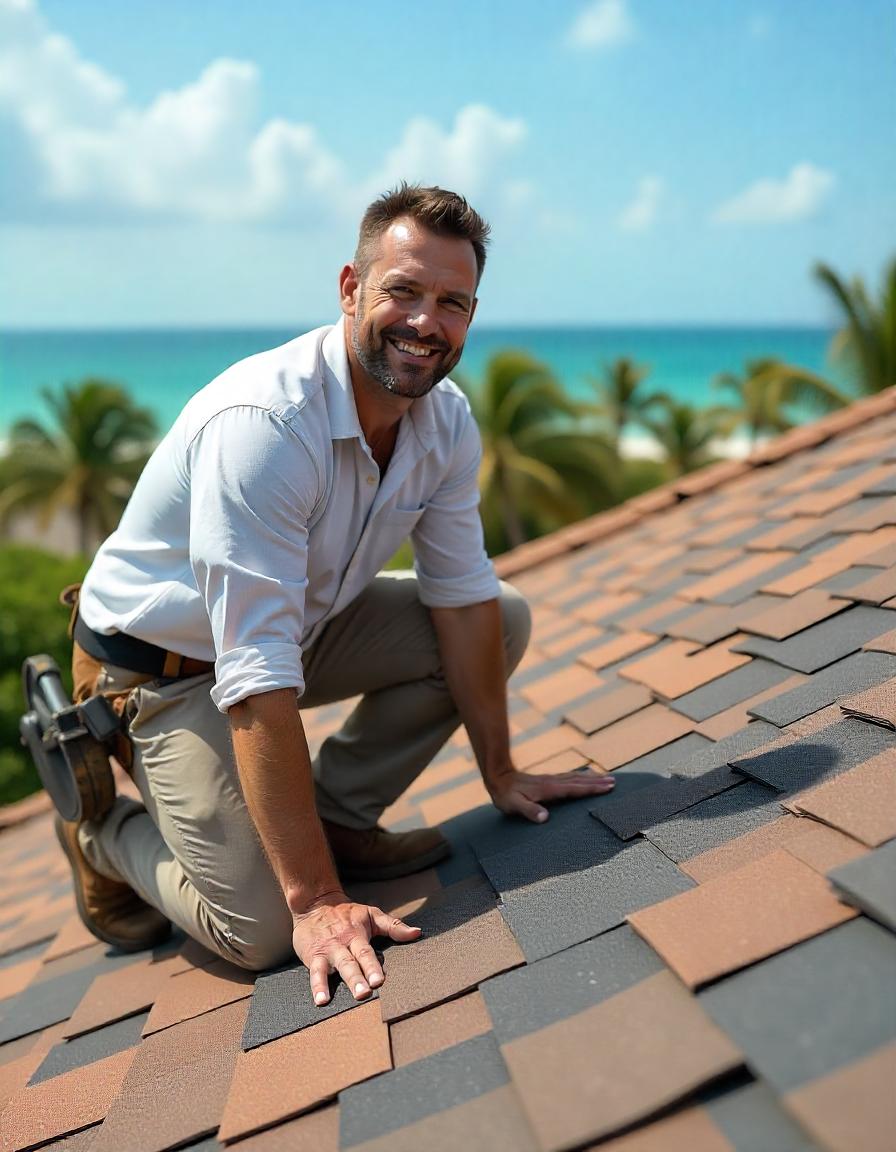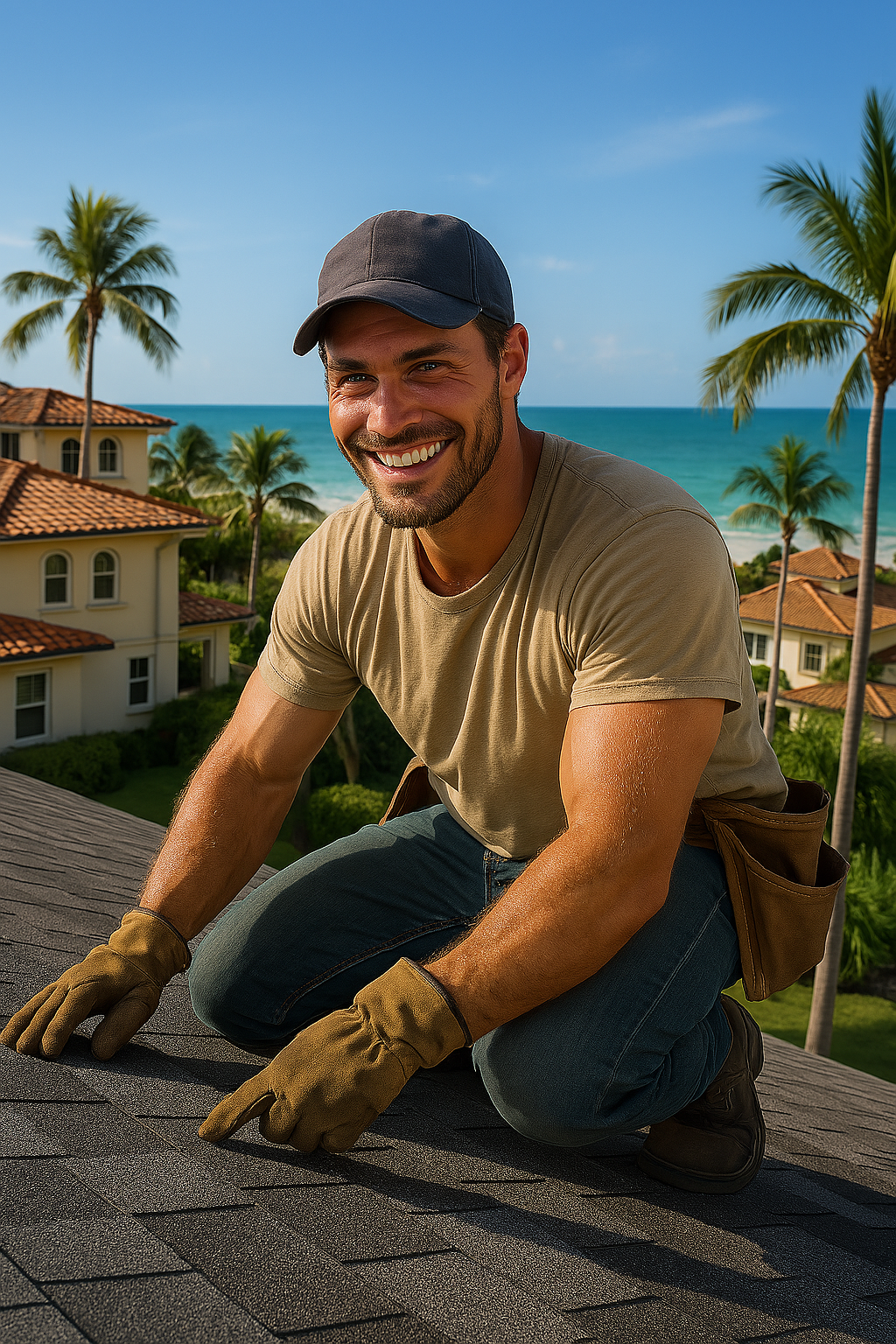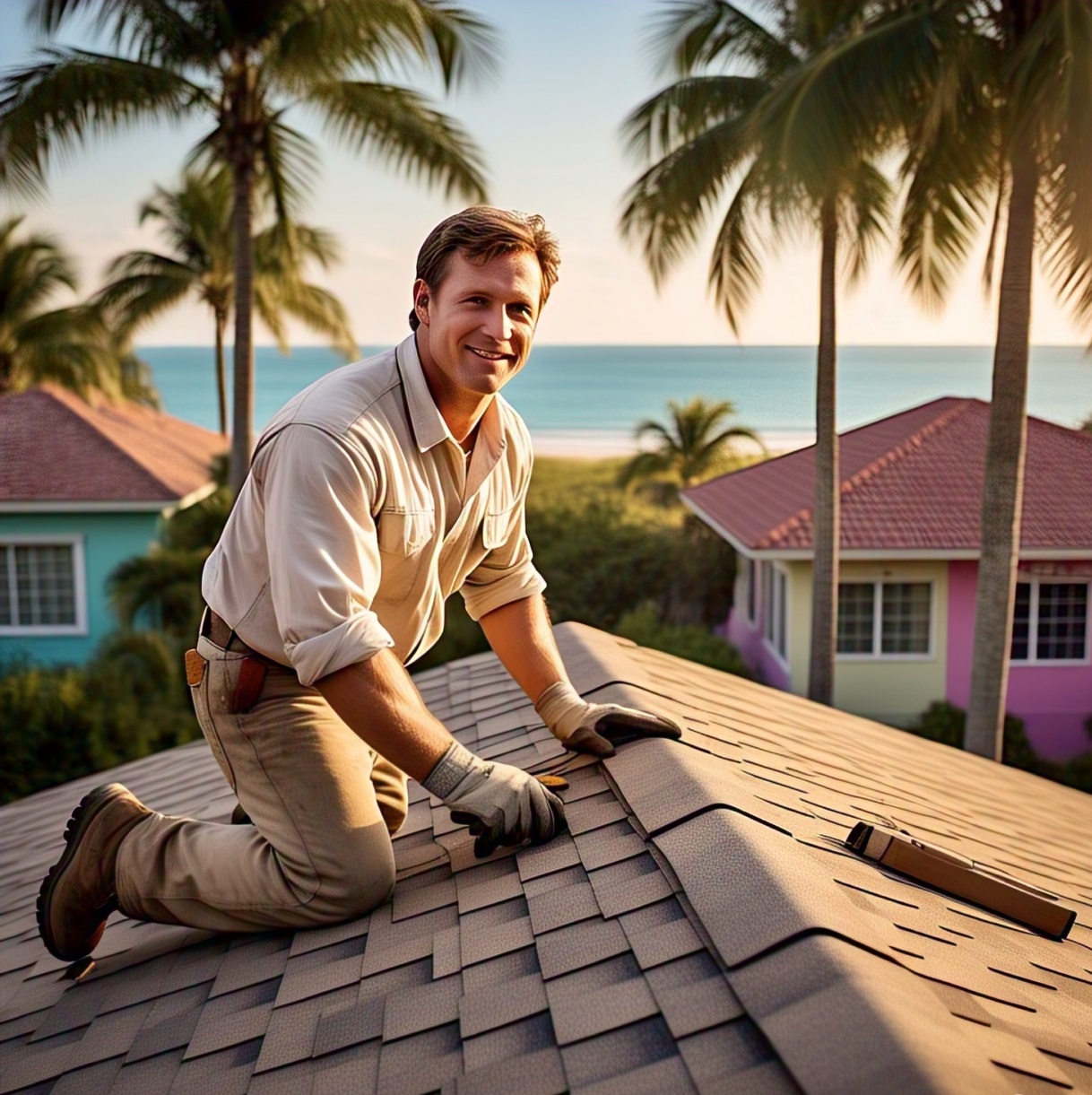
Introduction: Why Durable Commercial Roofing Matters in Jacksonville
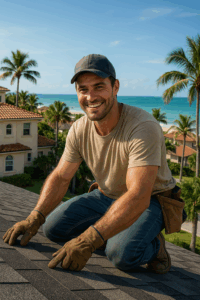 Jacksonville, Florida, is a thriving hub for businesses, from the bustling logistics warehouses near the Jacksonville Port to the vibrant retail centers in St. Johns Town Center. However, the city’s humid subtropical climate, characterized by heavy rainfall, hurricanes, and relentless UV exposure, poses significant challenges for commercial properties. Durable commercial roofing is not just a luxury—it’s a necessity for Jacksonville businesses aiming to protect their assets, reduce long-term costs, and ensure operational continuity. Whether you own a medical office in Southside, a restaurant in Riverside, or a distribution center near the St. Johns River, a high-quality roofing system is critical to your success.
Jacksonville, Florida, is a thriving hub for businesses, from the bustling logistics warehouses near the Jacksonville Port to the vibrant retail centers in St. Johns Town Center. However, the city’s humid subtropical climate, characterized by heavy rainfall, hurricanes, and relentless UV exposure, poses significant challenges for commercial properties. Durable commercial roofing is not just a luxury—it’s a necessity for Jacksonville businesses aiming to protect their assets, reduce long-term costs, and ensure operational continuity. Whether you own a medical office in Southside, a restaurant in Riverside, or a distribution center near the St. Johns River, a high-quality roofing system is critical to your success.
Commercial roofs in Jacksonville face unique stressors. The city’s average annual rainfall of over 50 inches, coupled with tropical storms and occasional hurricanes, can lead to leaks, mold, and structural damage if roofs are not built to withstand these conditions. Additionally, the intense Florida sun accelerates material degradation, especially on the flat roofs common in commercial buildings like office parks and strip malls. A durable roofing system, designed with Jacksonville’s climate in mind, can save businesses thousands in repairs, enhance energy efficiency, and maintain a professional appearance for clients and tenants.
Beyond weather-related challenges, Jacksonville’s commercial landscape demands roofs that align with diverse operational needs. For instance, manufacturing facilities in Westside require robust roofing to protect heavy machinery, while downtown office buildings prioritize aesthetics to attract high-end tenants. The right roofing solution not only mitigates environmental risks but also supports business goals, such as sustainability and cost efficiency. Modern roofing materials, like reflective TPO or EPDM systems, can reduce cooling costs by deflecting UV rays, a significant advantage in Jacksonville’s scorching summers where temperatures often exceed 90°F. Additionally, durable roofs contribute to property value, making them a smart investment for businesses planning to expand or sell in Jacksonville’s competitive real estate market.
Choosing the right roofing system involves understanding local building codes, which are stringent in Jacksonville due to its hurricane-prone location. Roofs must meet wind uplift resistance standards, such as those outlined in Florida’s Building Code, to ensure safety during storms. Partnering with a contractor who knows these regulations is essential to avoid costly compliance issues. Moreover, regular maintenance is key to extending roof lifespan in this harsh climate. Proactive inspections can catch minor issues, like cracked membranes or clogged drainage systems, before they escalate into major repairs that disrupt business operations.
This article explores the best commercial roofing solutions for Jacksonville businesses, from material options to contractor selection and maintenance strategies. We’ll dive into the specific challenges of the local climate, outline cost considerations, and share real-world examples of Jacksonville companies that have benefited from investing in robust roofing systems. By the end, you’ll have a clear roadmap to secure your property with a roof that stands up to Jacksonville’s toughest weather. Ready to protect your business? Start by evaluating your current roofing system and consulting a trusted Jacksonville commercial roofing contractor for a free inspection.
The Unique Challenges of Commercial Roofing in Jacksonville’s Climate
Jacksonville’s climate is both a blessing and a challenge for businesses. The warm temperatures and abundant sunshine make it an attractive location for industries like tourism, healthcare, and logistics. However, the same weather patterns that draw visitors to Jacksonville Beach wreak havoc on commercial roofs. Understanding these challenges is the first step to choosing a roofing system that ensures long-term durability.
The city’s humid subtropical climate brings high humidity levels, with summer months often exceeding 90% relative humidity. This moisture promotes mold growth and corrosion, particularly on flat roofs that lack proper drainage. Jacksonville’s rainy season, from June to September, delivers frequent downpours, with events like Hurricane Irma in 2017 causing widespread roof damage to businesses across Duval County. According to NOAA, Jacksonville experiences an average of 115 rainy days per year, increasing the risk of leaks and water pooling on poorly maintained roofs.
Hurricanes and tropical storms are another concern. Jacksonville’s coastal location makes it vulnerable to high winds, with the Florida Building Code requiring commercial roofs to withstand speeds of up to 130 mph. Flying debris during storms can puncture roofing membranes, while heavy rain overwhelms outdated drainage systems. For example, a retail plaza in Mandarin suffered significant water damage during a 2023 tropical storm due to an aging built-up roofing system that couldn’t handle the deluge.
Finally, Jacksonville’s intense UV exposure accelerates material degradation. Flat roofs, common in commercial properties like warehouses and office buildings, absorb heat, causing materials like asphalt or single-ply membranes to crack or fade over time. This not only shortens the roof’s lifespan but also increases cooling costs for businesses in areas like the Southside, where summer temperatures often exceed 90°F.
To combat these challenges, Jacksonville businesses need roofing systems designed for resilience. Materials like TPO and metal roofing offer superior UV resistance and wind uplift protection, while regular maintenance can prevent minor issues from becoming costly repairs. By addressing these climate-specific challenges, business owners can protect their properties and avoid disruptions during Jacksonville’s unpredictable weather.
Types of Commercial Roofing Systems for Jacksonville Businesses
Choosing the right roofing system is critical for Jacksonville businesses, given the city’s demanding climate. Commercial properties, from logistics hubs near the Jacksonville International Airport to retail centers in Riverside, require materials that balance durability, cost, and energy efficiency. Below, we explore the most popular commercial roofing systems and their suitability for Jacksonville’s unique environment.
Thermoplastic Polyolefin (TPO)
TPO is a single-ply roofing membrane known for its energy efficiency and UV resistance. Its white, reflective surface reduces heat absorption, making it ideal for Jacksonville’s hot summers. TPO is lightweight, easy to install, and resistant to mold and chemical exposure, which is crucial in the city’s humid climate. However, it requires skilled installation to prevent seam failures. Best for: Office buildings, retail centers, and medical facilities in areas like Southside or Downtown Jacksonville.
EPDM (Rubber Roofing)
EPDM, or ethylene propylene diene monomer, is a durable, synthetic rubber roofing material. Its black surface absorbs heat, but reflective coatings can improve energy efficiency. EPDM’s flexibility makes it resistant to thermal shock, a common issue during Jacksonville’s sudden temperature swings. It’s also cost-effective, with a lifespan of 20-30 years. Best for: Low-slope roofs on warehouses or industrial facilities near the Jacksonville Port.
Modified Bitumen
Modified bitumen is a multi-layered, asphalt-based roofing system that offers excellent heat resistance and durability. Its granular surface withstands heavy foot traffic, making it suitable for commercial buildings with rooftop HVAC units. In Jacksonville, modified bitumen’s resistance to UV damage and thermal expansion is a major advantage. Best for: Restaurants, retail plazas, or mixed-use properties in Riverside or Avondale.
Metal Roofing
Metal roofing, typically made of steel or aluminum, is a premium option for Jacksonville businesses. Its high wind resistance (up to 140 mph) and 40-60 year lifespan make it ideal for hurricane-prone areas. Metal roofs are also recyclable and reflective, reducing cooling costs. However, they come with a higher upfront cost. Best for: Warehouses, manufacturing plants, or large retail centers near I-95.
Built-Up Roofing (BUR)
BUR, or “tar and gravel” roofing, consists of multiple layers of asphalt and reinforcing fabrics topped with gravel. Its thick construction provides excellent durability and waterproofing, perfect for Jacksonville’s heavy rainfall. BUR is low-maintenance but requires skilled installation due to its weight. Best for: Older commercial buildings or flat-roofed structures in Downtown Jacksonville.
Each system has trade-offs, but Jacksonville’s climate favors materials like TPO and metal roofing for their UV resistance and storm durability. When selecting a system, consider your building’s size, budget, and energy goals. Consulting a local contractor with experience in Jacksonville’s building codes can help you make an informed decision.
Benefits of Investing in Durable Commercial Roofing
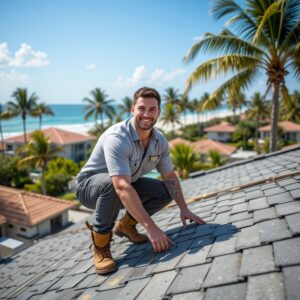 Investing in a durable commercial roofing system is a smart decision for Jacksonville business owners. Beyond protecting your property, a high-quality roof delivers financial, operational, and aesthetic benefits that enhance your bottom line. Here’s why prioritizing durability pays off in Jacksonville’s challenging climate.
Investing in a durable commercial roofing system is a smart decision for Jacksonville business owners. Beyond protecting your property, a high-quality roof delivers financial, operational, and aesthetic benefits that enhance your bottom line. Here’s why prioritizing durability pays off in Jacksonville’s challenging climate.
First, durable roofing significantly reduces repair costs. Systems like TPO or metal roofing can last 20-40 years with proper maintenance, compared to 10-15 years for lower-quality options. For example, a logistics company in Westside Jacksonville replaced its aging BUR roof with a TPO system, cutting annual repair costs by 60% and avoiding leaks during the 2024 rainy season. By minimizing emergency repairs, businesses can allocate budgets to growth rather than maintenance.
Energy efficiency is another major advantage. Jacksonville’s scorching summers drive up cooling costs, especially for large commercial buildings like office parks or retail centers. Reflective roofing materials, such as TPO or cool-coated metal, reduce heat absorption, lowering HVAC expenses. A medical office in Southside reported a 25% reduction in energy bills after installing a TPO roof, proving the value of energy-efficient systems in Jacksonville’s heat.
Durable roofs also enhance property value and curb appeal. In competitive commercial real estate markets like Downtown Jacksonville or St. Johns Town Center, a well-maintained roof signals quality to tenants and buyers. A modern roofing system can increase lease rates or attract premium clients, as seen in a Riverside mixed-use property that boosted occupancy after a metal roof installation.
Finally, a durable roof prevents business disruptions. Leaks or storm damage can halt operations, especially for retail or hospitality businesses reliant on foot traffic. A restaurant in Jacksonville Beach avoided costly closures during a 2023 storm thanks to its wind-resistant metal roof, while a nearby competitor faced weeks of repairs due to an outdated system.
To maximize these benefits, work with a Jacksonville commercial roofing contractor who understands local climate challenges and building codes. A durable roof is an investment in your business’s future, offering peace of mind and long-term savings.
Choosing the Right Commercial Roofing Contractor in Jacksonville
Selecting a reliable commercial roofing contractor is critical to the success of your roofing project. In Jacksonville, where climate and local regulations demand specialized expertise, partnering with an experienced professional ensures your roof withstands the city’s toughest conditions. Here’s how to choose the right contractor for your business.
Start by verifying the contractor’s local experience. Jacksonville’s unique climate—high humidity, frequent storms, and UV exposure—requires roofing solutions tailored to these challenges. A contractor familiar with Duval County’s weather patterns and Florida Building Code requirements will recommend materials and installation techniques suited to your property. For example, a contractor who has worked on warehouses near the Jacksonville Port will understand the need for wind-resistant systems like metal roofing.
Licensing and insurance are non-negotiable. Florida requires roofing contractors to hold a state-issued license (e.g., Certified Roofing Contractor or Registered Roofing Contractor). Verify their credentials through the Florida Department of Business and Professional Regulation. Additionally, ensure they carry general liability and workers’ compensation insurance to protect your business from liability. A reputable contractor will provide proof of these documents upfront.
Check for certifications from leading roofing manufacturers, such as GAF, CertainTeed, or Firestone. These certifications indicate advanced training in installing specific systems, like TPO or modified bitumen, which is crucial for long-term performance in Jacksonville’s climate. Reviews and references from local businesses also offer insight into a contractor’s reliability. A Southside office complex recently praised a Jacksonville contractor for completing a TPO roof installation on time and within budget, highlighting the value of local testimonials.
Ask key questions during consultations: What warranties do you offer? Do you provide maintenance plans? How quickly can you respond to emergency repairs, especially during Jacksonville’s hurricane season? A contractor with a clear process for post-storm inspections and repairs is essential for minimizing downtime.
Finally, request detailed, written estimates from multiple contractors to compare costs, timelines, and materials. A trustworthy contractor will explain their approach and tailor solutions to your building’s needs, whether it’s a retail plaza in Mandarin or a medical facility in Arlington.
Ready to get started? Contact a licensed Jacksonville commercial roofing contractor like Custom Roofing Solutions for a free inspection and take the first step toward a durable, reliable roof.
Common Commercial Roofing Problems in Jacksonville and How to Address Them
Commercial roofs in Jacksonville face a range of issues due to the city’s harsh climate. Identifying and addressing these problems promptly can prevent costly repairs and extend your roof’s lifespan. Below are the most common roofing challenges for Jacksonville businesses and practical solutions to tackle them.
Leaks and Ponding Water
Flat roofs, prevalent in Jacksonville’s commercial buildings, are prone to leaks and ponding water. Heavy rainfall, like the 10-inch deluges during Jacksonville’s rainy season, overwhelms outdated drainage systems, causing water to pool for days. This leads to membrane deterioration and interior damage. Solution: Install tapered insulation to improve drainage and apply waterproof coatings like silicone. A retail center in Regency Square fixed chronic leaks by upgrading its drainage system and adding a TPO overlay, preventing further water intrusion.
Storm Damage
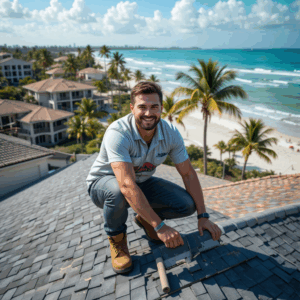 Hurricanes and tropical storms, common in Jacksonville, cause significant roof damage. High winds tear off shingles or puncture membranes, while flying debris creates holes. A warehouse near I-295 suffered extensive damage during a 2024 storm when debris punctured its EPDM roof. Solution: Use wind-resistant materials like metal roofing or fully adhered TPO. Post-storm inspections by a Jacksonville contractor can identify hidden damage and prevent leaks.
Hurricanes and tropical storms, common in Jacksonville, cause significant roof damage. High winds tear off shingles or puncture membranes, while flying debris creates holes. A warehouse near I-295 suffered extensive damage during a 2024 storm when debris punctured its EPDM roof. Solution: Use wind-resistant materials like metal roofing or fully adhered TPO. Post-storm inspections by a Jacksonville contractor can identify hidden damage and prevent leaks.
UV Degradation
Jacksonville’s intense sunlight accelerates material degradation, causing cracking, fading, or blistering on roofs like modified bitumen or BUR. This increases cooling costs and shortens roof lifespan. Solution: Apply UV-resistant coatings or choose reflective materials like TPO. A Downtown Jacksonville office building extended its roof’s life by 10 years with a reflective coating, also reducing HVAC expenses.
Poor Installation
Improper installation, such as weak seams or inadequate flashing, leads to early roof failures. A strip mall in Orange Park experienced leaks within five years of a TPO installation due to poor seam welding. Solution: Hire certified contractors with experience in Jacksonville’s building codes. Regular inspections during installation ensure quality workmanship.
Proactive maintenance is key to addressing these issues. Schedule inspections before and after Jacksonville’s hurricane season (June-November) to catch problems early. Partnering with a local contractor for emergency repairs and maintenance plans can save your business from costly downtime.
The Role of Regular Roof Maintenance for Jacksonville Businesses
Regular maintenance is the cornerstone of a long-lasting commercial roof in Jacksonville. The city’s extreme weather—torrential rains, high winds, and blazing sun—puts constant stress on roofing systems, making proactive care essential. By investing in routine maintenance, Jacksonville businesses can extend roof lifespan, reduce repair costs, and ensure compliance with warranties.
Routine inspections, ideally twice a year (spring and fall), are critical. Pre-hurricane season checks (before June) identify vulnerabilities like loose flashing or clogged drains, while post-storm inspections catch damage from winds or debris. A logistics facility near the Jacksonville Port avoided major repairs in 2024 by addressing minor seam damage during a fall inspection, saving thousands in potential leak repairs.
Maintenance tasks include cleaning drains to prevent ponding water, removing debris like palm fronds that trap moisture, and checking seams and flashing for wear. In Jacksonville’s humid climate, mold and algae can form on shaded roof areas, so cleaning with eco-friendly solutions is recommended. A retail plaza in Mandarin maintained its TPO roof’s reflective properties by scheduling annual cleanings, boosting energy efficiency.
Maintenance contracts with local roofing companies offer consistency and peace of mind. These plans typically include scheduled inspections, minor repairs, and priority service during emergencies, such as post-hurricane leaks. A Southside medical office benefited from a maintenance contract that ensured rapid repairs after a 2023 storm, minimizing disruptions to patient care.
Regular maintenance also ensures compliance with manufacturer warranties, which often require documented upkeep. For example, a 20-year TPO warranty may be voided without proof of annual inspections. By maintaining records, businesses protect their investment and avoid out-of-pocket replacement costs.
Local tip: Schedule maintenance before Jacksonville’s rainy season to prepare for heavy downpours. Partner with a Jacksonville commercial roofing contractor to create a customized maintenance plan that keeps your roof in top shape year-round.
Cost Considerations for Commercial Roofing in Jacksonville
Understanding the costs of commercial roofing is essential for Jacksonville business owners planning new installations, replacements, or repairs. While durable roofing systems require an upfront investment, they deliver significant long-term savings through reduced maintenance and energy efficiency. Here’s a breakdown of cost factors and budgeting tips for Jacksonville businesses.
Roof size is the primary cost driver. Commercial roofs are priced per square foot, with larger buildings like warehouses or retail centers incurring higher costs. In Jacksonville, new installations range from $10-$24 per square foot, depending on the material. For example, TPO costs $10-$15 per square foot, while metal roofing ranges from $16-$24. Repairs are more affordable, averaging $6-$14 per square foot for issues like leaks or storm damage.
Material choice also impacts costs. EPDM is budget-friendly ($10-$12 per square foot), while metal roofing is pricier but offers a longer lifespan. Labor costs in Jacksonville are influenced by project complexity, such as navigating HVAC units or skylights, which are common in commercial buildings like those in St. Johns Town Center. A 2024 TPO installation on a Southside office complex cost $150,000 for a 10,000-square-foot roof, including labor and permits.
Financing options can ease the burden. Many Jacksonville contractors offer payment plans or connect clients with loans for large projects. Manufacturers like GAF provide rebates for energy-efficient systems, while Florida’s energy efficiency programs offer tax credits for cool roofs. A Riverside retail plaza saved 15% on a TPO roof through a state rebate, offsetting initial costs.
Long-term savings justify the investment. Durable roofs reduce repair frequency and lower cooling costs, especially in Jacksonville’s heat. A logistics hub near I-95 recouped its metal roof investment within 10 years through energy savings and minimal maintenance.
To budget effectively, request detailed quotes from multiple Jacksonville contractors. Compare material options, warranties, and maintenance plans to find the best value. A free consultation with a local roofing expert can provide accurate estimates tailored to your property.
Energy-Efficient Roofing Solutions for Jacksonville’s Hot Climate
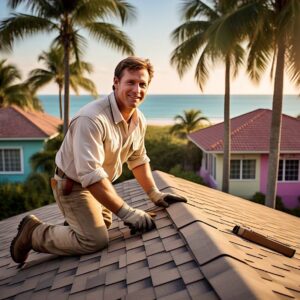 Jacksonville’s sweltering summers, with temperatures often exceeding 90°F, drive up cooling costs for commercial buildings. Energy-efficient roofing solutions can significantly reduce these expenses while supporting sustainability goals. For businesses in areas like Downtown Jacksonville or the Southside, choosing the right roof can lead to substantial savings and environmental benefits.
Jacksonville’s sweltering summers, with temperatures often exceeding 90°F, drive up cooling costs for commercial buildings. Energy-efficient roofing solutions can significantly reduce these expenses while supporting sustainability goals. For businesses in areas like Downtown Jacksonville or the Southside, choosing the right roof can lead to substantial savings and environmental benefits.
Cool roofs, such as TPO or reflective-coated metal, are highly effective in Jacksonville’s climate. Their white or light-colored surfaces reflect sunlight, reducing roof temperatures by up to 50°F compared to dark materials like BUR. This lowers HVAC demand, cutting energy bills. A healthcare facility in Arlington installed a TPO roof in 2023, reducing cooling costs by 30% and earning a Florida energy rebate.
Green roofs, which incorporate vegetation, are gaining popularity in urban areas like Downtown Jacksonville. These systems insulate buildings, reduce stormwater runoff, and improve air quality. While installation costs are higher ($20-$30 per square foot), green roofs offer long-term savings and appeal to eco-conscious tenants. A mixed-use property in Riverside adopted a green roof, boosting occupancy by attracting sustainability-focused businesses.
Solar-ready roofs are another option for forward-thinking companies. Metal or TPO roofs can be designed to support solar panels, allowing businesses to tap into renewable energy. Jacksonville’s abundant sunshine makes solar a viable investment, with state and federal incentives offsetting costs. A warehouse near the Jacksonville Port installed a solar-ready metal roof, cutting energy costs by 40% after adding panels.
Local incentives enhance the appeal of energy-efficient roofing. Florida’s Property Assessed Clean Energy (PACE) program offers financing for cool roofs, while federal tax credits support solar installations. Check with the Jacksonville Economic Development Commission for additional grants.
To explore energy-efficient options, consult a Jacksonville commercial roofing contractor like Custom Roofing Solutions with expertise in cool roofs or solar integration. A tailored solution can lower your operating costs and position your business as a leader in sustainability.
Navigating Jacksonville’s Building Codes and Permits for Commercial Roofing
Compliance with Jacksonville’s building codes and permitting requirements is essential for any commercial roofing project. Failure to follow regulations can result in fines, project delays, or unsafe installations. Understanding these rules ensures your roof meets safety standards and withstands the city’s challenging climate.
The Florida Building Code (FBC), enforced in Jacksonville, sets stringent standards for commercial roofs. Given the city’s coastal location, roofs must resist wind speeds of up to 130 mph to protect against hurricanes. This requires high-quality materials like fully adhered TPO or metal roofing and proper anchoring systems. A warehouse in Westside Jacksonville avoided storm damage in 2024 thanks to a code-compliant metal roof installed with enhanced fasteners.
Permits are required for most roofing projects, including new installations, replacements, and major repairs. In Jacksonville, the Building Inspection Division oversees permitting, ensuring compliance with the FBC and local ordinances. The process involves submitting detailed plans, including material specifications and engineering data, which a licensed contractor can handle. Permit costs vary, typically $200-$1,000 depending on project scope.
Contractors play a crucial role in navigating these requirements. Experienced Jacksonville roofing professionals are familiar with the FBC’s wind mitigation standards and permitting process, streamlining approvals. A retail center in Mandarin faced delays due to an unlicensed contractor’s failure to secure permits, highlighting the importance of hiring qualified professionals.
Non-compliance carries steep penalties, including fines up to $1,000 per violation or orders to halt work. In extreme cases, non-compliant roofs may need to be replaced, as seen in a 2023 case where a Downtown Jacksonville office building faced costly rework.
For guidance, visit the City of Jacksonville’s Building Inspection Division website or consult a licensed contractor. By prioritizing compliance, you’ll ensure your roof is safe, durable, and legally sound.
Case Studies: Successful Commercial Roofing Projects in Jacksonville
Real-world examples demonstrate the value of durable commercial roofing in Jacksonville. These case studies highlight how local businesses addressed roofing challenges, worked with experienced contractors, and achieved lasting results.
Case Study 1: Logistics Warehouse Near Jacksonville Port
A 50,000-square-foot warehouse near the Jacksonville Port faced frequent leaks due to an aging BUR roof. Heavy rainfall and high winds during the 2023 hurricane season exacerbated the issue, threatening stored inventory. The owner hired a Jacksonville contractor to install a metal roofing system with a 140 mph wind rating. The project, completed in eight weeks, included enhanced drainage to handle Jacksonville’s downpours. Results: Zero leaks in 2024, 20% lower cooling costs, and a 40-year roof lifespan.
Case Study 2: Riverside Retail Plaza
 A retail plaza in Riverside suffered storm damage after a 2023 tropical storm tore off sections of its modified bitumen roof. The damage caused leaks, forcing two tenants to close temporarily. The property manager partnered with a local contractor to install a TPO roof with reflective properties. The contractor also upgraded drainage to prevent ponding water. Results: The plaza reopened within days, energy costs dropped 25%, and tenant satisfaction improved due to the modern, leak-free roof.
A retail plaza in Riverside suffered storm damage after a 2023 tropical storm tore off sections of its modified bitumen roof. The damage caused leaks, forcing two tenants to close temporarily. The property manager partnered with a local contractor to install a TPO roof with reflective properties. The contractor also upgraded drainage to prevent ponding water. Results: The plaza reopened within days, energy costs dropped 25%, and tenant satisfaction improved due to the modern, leak-free roof.
Case Study 3: Southside Office Building
An office building in Southside struggled with high HVAC costs due to an outdated EPDM roof that absorbed heat. The owner opted for a cool TPO roof to improve energy efficiency. The contractor completed the installation in 2024, incorporating solar-ready features for future panel installation. Results: Cooling costs fell by 30%, the building qualified for a Florida energy rebate, and property value increased by 10%.
These projects underscore the importance of choosing materials and contractors suited to Jacksonville’s climate. Whether you’re upgrading a warehouse, retail center, or office, a durable roof delivers measurable benefits.
Conclusion: Secure Your Jacksonville Business with Durable Roofing
Jacksonville’s dynamic business landscape, from the logistics hubs near the St. Johns River to the retail hotspots in St. Johns Town Center, relies on durable commercial roofing to thrive. The city’s humid, storm-prone climate demands roofing systems that withstand heavy rain, high winds, and intense UV exposure. By investing in high-quality materials like TPO, metal, or modified bitumen, businesses can protect their assets, reduce operating costs, and ensure uninterrupted operations.
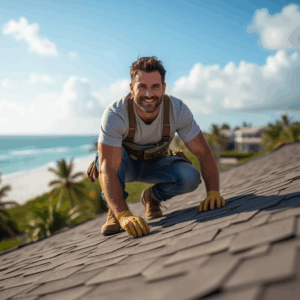 Hopefully this article about commercial roofing has helped you. We have explored the key considerations for Jacksonville commercial roofing: selecting the right materials, addressing climate-specific challenges, choosing experienced contractors, and prioritizing maintenance. Energy-efficient options, compliance with local building codes, and real-world case studies demonstrate the value of durable roofing for businesses in Southside, Riverside, Downtown, and beyond.
Hopefully this article about commercial roofing has helped you. We have explored the key considerations for Jacksonville commercial roofing: selecting the right materials, addressing climate-specific challenges, choosing experienced contractors, and prioritizing maintenance. Energy-efficient options, compliance with local building codes, and real-world case studies demonstrate the value of durable roofing for businesses in Southside, Riverside, Downtown, and beyond.
Take action today to secure your property. Schedule a free roof inspection with Custom Roofing Solutions. We are the Jacksonville area’s commercial roofing contractor. We will assess your current system and advise you of what can be done to properly secure your commercial building. Explore energy-efficient upgrades, request quotes for new installations, or establish a maintenance plan to prepare for the upcoming hurricane season. A durable roof is more than a structure—it’s a foundation for your business’s long-term success. Give Custom Roofing Solutions a call right now. (904) 808-3550 Or fill out the contact form on our website for more information.
continue reading
Related Posts
Introduction: The Value of a Local Jacksonville Roofing Contractor In
Introduction: Why Roof Replacement Matters in Jacksonville Your home in
Understanding Duval County’s Unique Climate Challenges Duval County, encompassing Jacksonville
SERVING TAMPA, ST. PETE & ORLANDO
Empowering Your Vision
CENTRAL FLORIDA

CALL TODAY AT (813) 644-2213
Custom Roof Solutions is proud to serve Tampa & Orlando homeowners and businesses with industry-leading roofing and solar services. Whether you need to protect your property from the unpredictable Florida weather or lower your energy costs with solar power, our experienced team is here to provide reliable solutions tailored to your needs.
SERVING JACKSONVILLE AREAS
Empowering Your Vision
NORTH FLORIDA
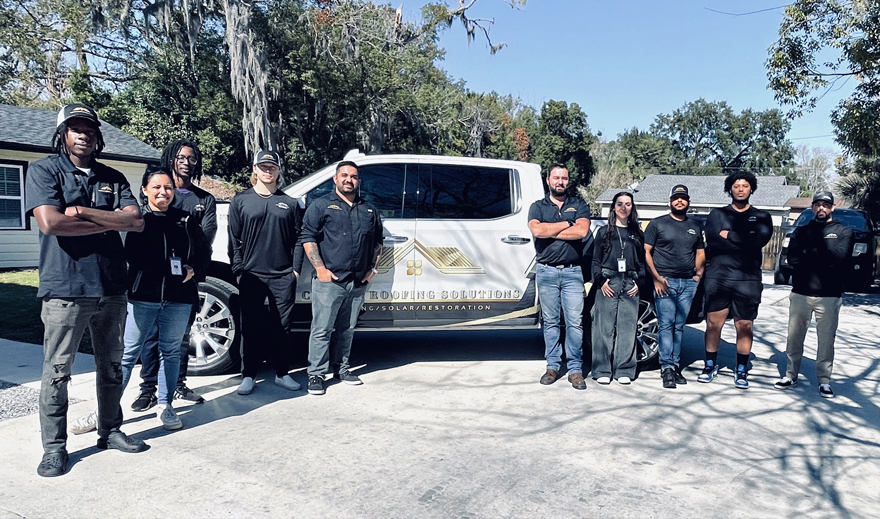
CALL TODAY AT (904) 808-3550
At Custom Roof Solutions, we understand Jacksonville’s unique weather conditions and architectural styles. Whether it’s protecting your home from hurricane-force winds, foof repairs or enhancing its curb appeal with a modern design, our experienced team delivers superior results and ensures long-lasting durability with our premium materials.
